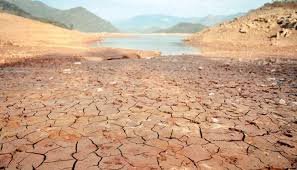The Growing Water Crisis in Pakistan: Causes and Solutions

Pakistan is facing an increasingly severe water crisis due to mounting pressure on its water resources. With a rapidly growing population, fast-paced urbanization, industrial expansion, and heavy dependence on water for agriculture and energy production, the country is direly struggling to meet its water requirements. These crisis, if left unchecked, could have devastating effects on Pakistan’s economy, environment, and public health.
One of the primary causes of water scarcity in Pakistan is its rapidly increasing population. With over 240 million people, the demand for fresh water for drinking, sanitation, and domestic use has surged significantly. As cities expand, the stress on water infrastructure has intensified, leading to acute shortages, particularly in urban centers like Karachi, Lahore, and Islamabad. Furthermore, industries such as textiles, chemicals, and manufacturing consume vast amounts of water, exacerbating the crisis.
Agriculture, which accounts for nearly 90% of Pakistan’s water usage, is another major contributor to the crisis. Outdated irrigation techniques, such as flood irrigation, lead to significant water wastage. Additionally, the cultivation of water-intensive crops like sugarcane and rice in arid regions further depletes water reserves. The increasing reliance on hydropower for electricity generation has also contributed to water shortages, as dams and reservoirs require large volumes of water, often at the expense of agricultural and domestic needs. Climate change has worsened the situation by disrupting rainfall patterns and accelerating glacial melting, leading to unpredictable water availability.
Addressing this crisis requires urgent and effective policy measures. The government must implement strict regulations to manage water usage across different sectors. Encouraging modern irrigation techniques, such as drip irrigation and sprinkler systems, can significantly reduce water wastage in agriculture. Rainwater harvesting should be promoted to maximize water conservation, and artificial groundwater recharge methods must be adopted to sustain water reserves.
Indigenous knowledge and traditional water conservation methods, such as the Karez system in Balochistan, should be revived and integrated with modern technology to create sustainable solutions. Public awareness campaigns are also crucial in promoting responsible water usage among citizens. On a broader scale, strengthening water diplomacy with neighbouring countries like India and Afghanistan through fair water-sharing agreements can help ensure a stable water supply for the future.
Pakistan’s water crisis is a growing threat that requires immediate action. Through policy reforms, efficient water management, and community participation, the country can mitigate the crisis and secure its water resources for future generations. Failure to act now could lead to severe economic, social, and environmental repercussions.






